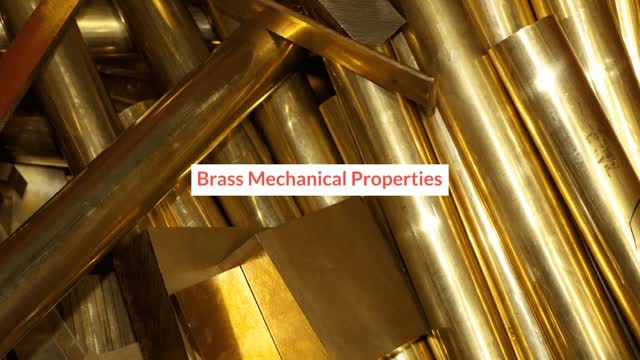Due to its unique properties, brass is one of the most commonly used industrial alloys. Its versatility makes brass suitable for a nearly endless number of products across numerous industries. At Sequoia Brass & Copper, we are a leading domestic supplier of various nonferrous metals, including brass plates, sheets, bars, tubes, and more. Serving metal fabrication industries across North America, we can deliver quality brass materials at competitive prices.
What is Brass Made Out of?
Brass is created by combining varying amounts of zinc and copper. This baseline compositional balance can be adjusted to create different types of brass alloys, many of which result in even more unique mechanical properties.
Common elements are added to brass to further enhance its characteristics. These may include aluminum, phosphorus, lead, manganese, or silicon. For example, adding as much as 2% lead produces a brass alloy with enhanced machinability. Other compositions, however, make brass softer, more brittle, or too difficult to cold work. Another issue that may arise is dezincification, where excess zinc gradually increases the porosity of brass, rendering the metal weaker and increasingly prone to breaking over time. Because of this, it’s important to consider your particular application requirements to ensure you select the proper alloy.
Properties of Brass
Depending on the alloy, the exact properties of brass can include any combination of the following:
- Corrosion Resistance: Brass, like copper, resists corrosion, making it a preferred choice by many manufacturers. Certain brass alloys can even withstand seawater, which is ten times more corrosive than tap water. This is why brass components in furniture, accessories, and other products require regular polishing to maintain their sheen.
- Workable: Brass is well-known for its malleability, allowing manufacturers to mold a variety of forms without the need to apply heat. Brass can be easily cold worked, brazed, and welded. Slightly increasing the lead content further improves machinability.
- Germicidal Properties: Like most nonferrous metals, certain brass alloys have antimicrobial properties. This is because such alloys produce ions that react with a protein common to single-celled organisms, killing them in two to four hours (depending on the alloy). This ability makes brass a common choice for filtration systems.
- Aesthetic Appeal: Standard brass has an unmistakable luster which arguably rivals that of gold. Brass is often considered an excellent, and much more affordable, alternative to gold in arts, crafts, and other aesthetic uses.
Mechanical Applications of Brass
With its easy machinability, conductivity, and various other unique mechanical properties, brass is suitable for an extensive range of manufacturing needs. Numerous industries rely on brass to fabricate products such as:
- Locks
- Bearings
- Gears
- Valves
- Base plates
- Brackets
Brass Metals From Sequoia Brass & Copper
The many beneficial properties of brass make it a popular choice for a wide range of industrial applications. At Sequoia Brass & Copper, we specialize in various brass materials, including bars, rods, sheets, plates, tubes, pipes, and more. Our brass materials come in various stock sizes and we can cut to meet your particular specifications.
Our high product quality, competitive pricing, and low shipping rates make us your go-to source for brass materials. For more information about our brass products, or to get started on your custom order, request a quote today.

